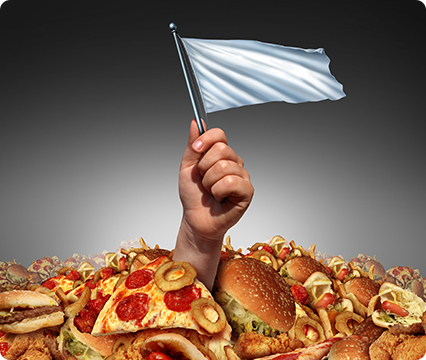Obesity and the neurocognitive basis of food reward and the control of intake
This 2015 review analysed the evidence for the dysregulation of the brain reward system in human obesity, while also considering 2 contrasting perspectives on the control of hedonic eating, in taking control of your intake via higher cognitive control and the loss of discipline observed by the food addiction model. Ziauddeen et al. (2015) also discusses directions for future research and interventions with potential to improve self-control over eating, at the population and individual level. [NPID: sugar, processed food, reward, obesity, hedonic eating, cognitive control, discipline, food addiction, addiction, self-control]
Year: 2015

 Navigation
Navigation






